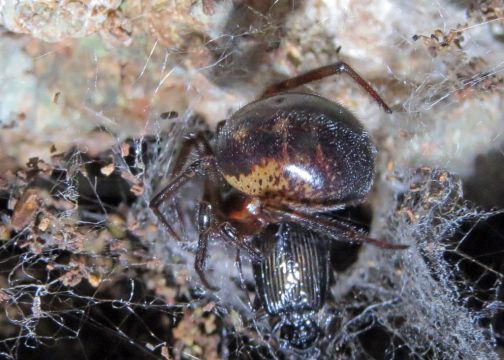The National Poisons Information Centre has issued a warning about the false widow spider whose venom is more potent than that of native spiders and warned it shares two-thirds of its venom toxin with that of a true black widow spider.
It said with temperatures set to drop that the risk of encountering a false widow in the home will increase particularly around windows and in conservatories.
“The false widow is established in most counties in Ireland. It is the most common urban spider. Its tolerance to cold temperatures, activity throughout the year and a 5-year life span make it competitive against native Irish spiders.”
It said it can produce 1,000 off-spring a year and “in contrast native spiders are inactive during colder months, have shorter life spans and produce fewer offsprings.”
In a post shared on social media, the centre said the venom “is more potent than that of native spiders. It shares two-thirds of its venom toxin with that of a true black widow.
If you are bitten it said the severity “will depend on the spider and the sensitivity of the individual,” but a bite from a false widow is not fatal.
“Pain, redness and swelling at the area of the bite are common. Nausea, vomiting, headache, hot and cold flushes sometimes occur. Necrosis and bacterial infection have rarely been reported.”
If you are bitten it said to: “Gently wash the affected area with soap and water. Apply a cold pack to the site. Contact the NPIC, GP or pharmacist if pain persists or swelling develops. Seek medical attention for bites on or around the eye.
“Seek urgent medical advice if vomiting, radiating pain and/or hot/cold flushes develop.”
It finished the post on Facebook with good news saying they do not randomly bite and “it's venom is a complex resource and is usually reserved for prey, rather than humans.”
The National Poisons Information Centre is at Beaumont Hospital, Dublin.







